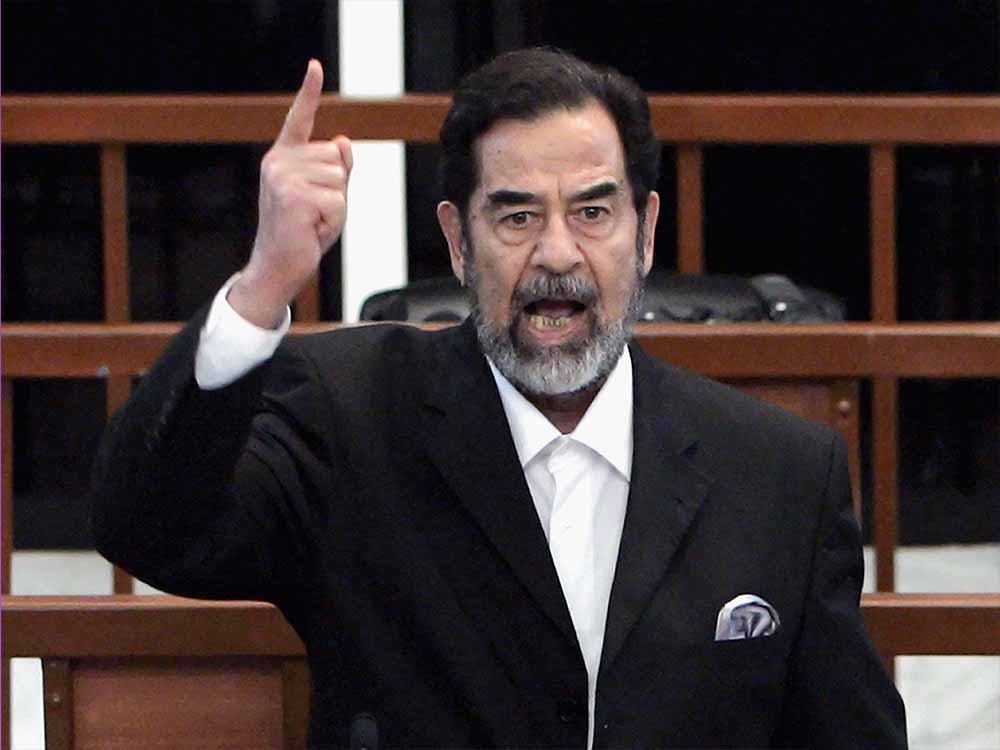Overview of Saddam Hussein in 2004
Saddam Hussein, the former President of Iraq, faced a tumultuous year in 2004 marked by significant legal proceedings, political developments, and ongoing insurgency in Iraq. Despite being ousted from power by the United States-led invasion in 2003, Saddam Hussein continued to cast a shadow over Iraqi politics and international affairs, as his regime’s legacy of brutality and oppression continued to reverberate throughout the country.
Legal Proceedings and Trial
In 2004, Saddam Hussein found himself at the center of legal proceedings as he faced charges of war crimes, crimes against humanity, and genocide. Following his capture by U.S. forces in December 2003, Hussein was held in custody and eventually transferred to Iraqi legal authorities for trial.
The trial of Saddam Hussein, which began in October 2005, was a highly anticipated and closely watched event both within Iraq and around the world. The proceedings, held under the auspices of the Iraqi Special Tribunal, sought to hold Hussein accountable for his regime’s atrocities, including the Anfal campaign against the Kurds, the suppression of the Shia uprising in 1991, and the brutal crackdown on political dissent.
Insurgency and Continued Violence
Despite Saddam Hussein’s capture and the demise of his regime, Iraq remained embroiled in violence and insurgency in 2004. The country witnessed a surge in attacks against coalition forces, Iraqi security personnel, and civilians, as various insurgent groups sought to undermine the U.S.-led occupation and destabilize the nascent Iraqi government.
The insurgency, characterized by bombings, assassinations, and guerrilla warfare, posed a significant challenge to efforts to stabilize Iraq and establish a democratic government. Saddam Hussein’s loyalists, along with Sunni extremists and foreign fighters, were among the key perpetrators of violence, as they sought to resist the U.S. occupation and regain power in Iraq.
Political Developments and Transition
Amidst the violence and instability, Iraq experienced significant political developments in 2004 as the country transitioned to a new government and sought to draft a new constitution. The Coalition Provisional Authority, led by the United States, worked with Iraqi political leaders to establish an interim government and lay the groundwork for democratic elections.
Despite challenges and setbacks, including the withdrawal of key political parties from the transitional government, Iraq held its first democratic elections in January 2005, marking a historic milestone in the country’s transition to democracy. The elections, which saw high voter turnout despite security concerns, resulted in the formation of a new government and the drafting of a new constitution.
Legacy and Historical Significance
Saddam Hussein’s legacy in 2004 was one of violence, oppression, and upheaval, as Iraq continued to grapple with the aftermath of his regime’s brutal rule and the consequences of the U.S.-led invasion. Despite being removed from power and facing legal proceedings, Hussein’s influence loomed large over Iraqi politics and society, as his regime’s remnants and loyalists continued to pose a threat to stability and security.
Moreover, Saddam Hussein’s capture and trial represented a symbolic moment in Iraq’s transition to democracy and the pursuit of justice for his regime’s victims. While his trial and eventual execution served as a form of closure for some Iraqis, others continued to grapple with the legacy of his rule and the challenges of building a stable and democratic Iraq in the aftermath of his regime’s collapse.
In conclusion, 2004 was a pivotal year for Saddam Hussein and Iraq, as the country grappled with the aftermath of his regime’s downfall, the challenges of insurgency and violence, and the transition to democracy. Despite being removed from power and facing legal proceedings, Hussein’s legacy continued to cast a long shadow over Iraqi politics and society, underscoring the complexities and challenges of Iraq’s post-war reconstruction and reconciliation efforts.











